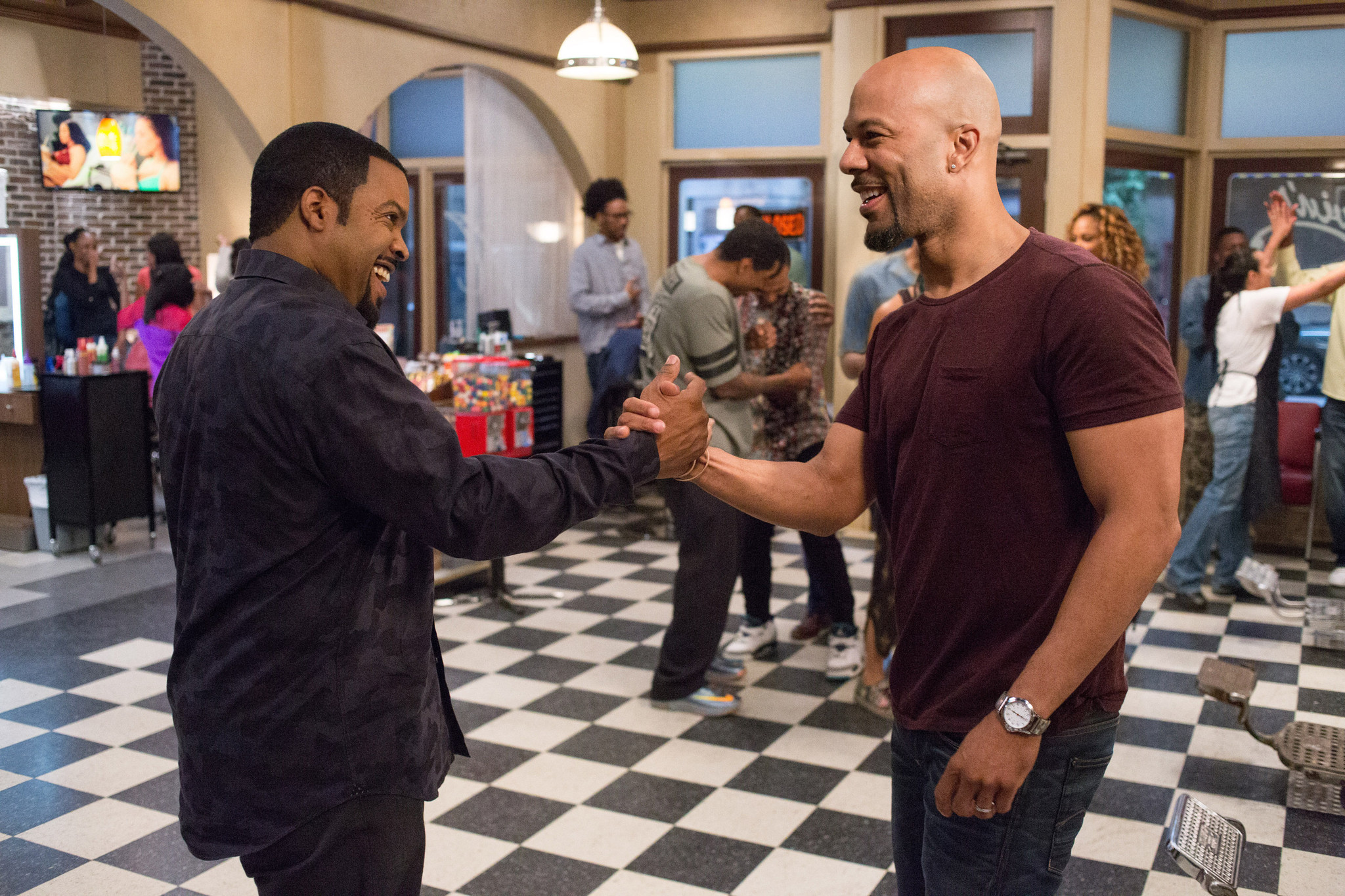I’ve always been fascinated by the attraction of a barbershop to the African American community, probably because there is no equivalent place like it in other places. It seems like a democratic forum where judgment is left at the door and people get to say their peace about whatever they’re thinking about. Barbershop: The Next Cut really sells how special this place can be, discussing things as simple as why weaves are important to black women to as prescient as gang influence on youth on the community. Barbershop works because it uses a light touch, and it takes everyone seriously in their opinions.
Barbershop: The Next Cut is more of a few day hangout in the shop; the main through line is owner Calvin’s (Ice Cube) concern over his son Jalen (Michael Rainey Jr.) and his potential recruitment by a gang. With the gang violence escalating on the South Side of Chicago, the barbershop calls for a 48 hour ceasefire and offers free haircuts for everyone who participates. This exacerbates other issues going on in the barbershop, like Terri’s (Eve) fear that her husband Rashad (Common) might be cheating on her with Draya (Nicki Minaj); Jerrod’s (Lamorne Morris) flirtation with Bree (Margot Bingham); and racial/gender/age bickering between Angie (Regina Hall), One-Stop (JB Smoove), Dante (Deon Cole), Raja (Utkarsh Ambudkar), and Eddie (Cedric the Entertainer).
Barbershop: The Next Cut shows the deserved reverence of the barbershop to the community very well. Because of the open forum feel, people get to say their peace and engage in real conversations. The conversations also jump topics relatively smoothly, starting from simple place and jumping to a monologue about modern relationships or how best to stop needless killing. Whenever Barbershop threatens to become excessively preachy, it will drop in a joke and move on. To keep the tone light, that is the correct decision, but more often than not I was left wanting more: rarely especially in film, are African Americans allowed to say their opinions about how to solve some of the big issues in the world, and I was riveted hearing the heated but real debates between the characters. I hope the next Barbershop movie digs deeper into these issues because it offers a fresh perspective.
Barbershop struggles when it’s not just focused on hanging out. The plot lines are crammed into the movie and undercooked. The Draya/Rashad/Terri story exists just to show Nicki Minaj’s ass as much as possible, and J.D.’s (Anthony Anderson) food business is tied in to show the hot actor of the moment (Blackish is very funny). Many of these little plots are tied to a joke or a movie manufactured misunderstanding that is tiresome. The one exception is Calvin worrying about his son. While slightly clichéd, the movie tosses in some small moments like the discovery of gang paraphernalia in a drawer or a father-to-father conflict over trusting each other’s sons. This story has more specificity and real stakes, making its resolution more potent.
Hey, Hollywood. Are you really telling me that you have trouble finding black actors for parts? Cause I counted at least 15 decent ones in here. Ice Cube is a great anchor for Barbershop; the man has been in a lot of films, and he easily balances the funny and serious. Common not only has grown into a good actor, but he can break dance super well. Nicki Minaj was clearly coddled and seen from behind, but she uses her stuff super well and isn’t a terrible actress. Cedric the Entertainer, Regina Hall, Eve, Deon Cole, and JB Smoove add their comedic prowess admirably with limited screen time. But the big surprises are Utkarsh Ambudkar as the Indian barber; he gets some sharp satire as one of the only non-black leads. But Lamorne Morris is a revelation as the nerdy black sidekick, dishing lines with as much confidence as the seasoned vets he’s around. His courtship of Margot Bingham is adorable and could be fleshed out in a later movie; the two of them work very well together.
You know you are in a different film when the only white actors are used as stereotyped punchlines. Barbershop: The Next Cut feels like an insider look into the rich lives of African Americans, and their takes on the things that matter to the community. If they let me, I would love to hang out more often, but my hair needs are very boring, sad to say.

